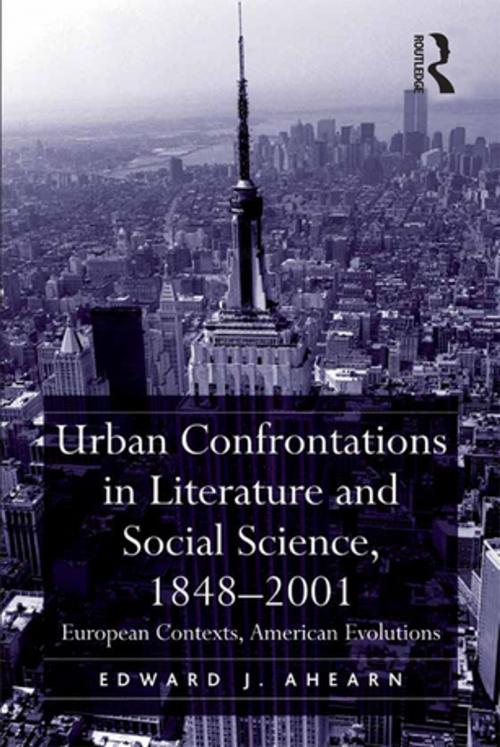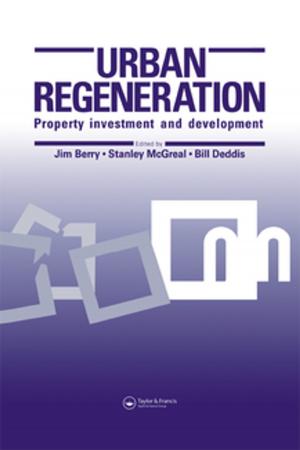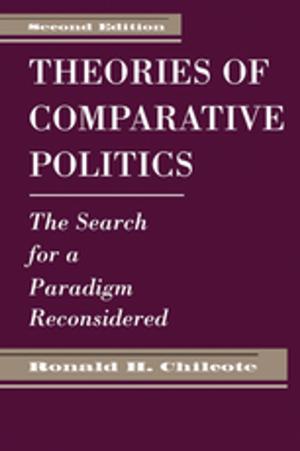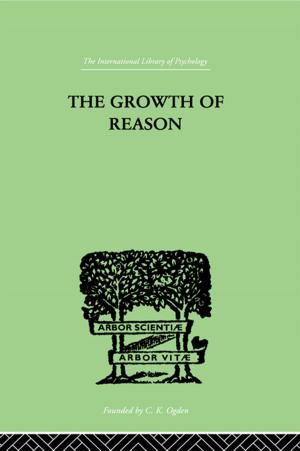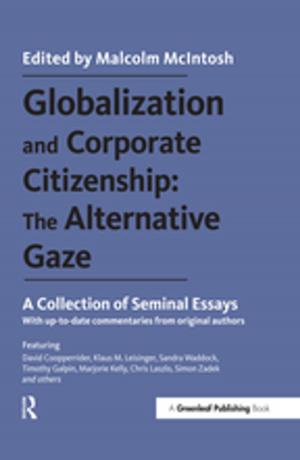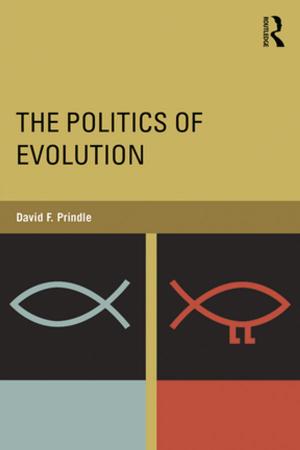Urban Confrontations in Literature and Social Science, 1848-2001
European Contexts, American Evolutions
Fiction & Literature, Literary Theory & Criticism| Author: | Edward J. Ahearn | ISBN: | 9781317003960 |
| Publisher: | Taylor and Francis | Publication: | February 11, 2016 |
| Imprint: | Routledge | Language: | English |
| Author: | Edward J. Ahearn |
| ISBN: | 9781317003960 |
| Publisher: | Taylor and Francis |
| Publication: | February 11, 2016 |
| Imprint: | Routledge |
| Language: | English |
In an innovative contribution to the challenging of disciplinary boundaries, Edward J. Ahearn juxtaposes works of literature with the writings of social scientists to discover how together they illuminate city life in ways that neither can accomplish separately. Ahearn's argument spans from the second half of the nineteenth century in Western Europe to the present-day United States and encompasses a wide range of literary genres and sociological schools. For example, Charles Baudelaire's essays on the city are viewed alongside the work of Emile Durkheim and Georg Simmel; Bertolt Brecht's Jungle of Cities heightens the arguments of Louis Wirth and Robert Park; Richard Wright's Native Son and Saul Bellow's The Adventures of Augie March are re-visioned in tandem with works by William Julius Wilson and others; Herman Melville's "Bartleby the Scrivener" poses a challenge to James Q. Wilson's Bureaucracy; Toni Morrison's historical novel Jazz is buttressed by the career of Robert Moses and the revisionist work of historians Hilary Ballon and Kenneth T. Jackson; and Don DeLillos's Cosmopolis comes into brilliant focus in the light of arguments on world cybercities by David Harvey, Saskia Sassen, and Manuel Cassels. Resisting the temptation to ignore contradictions for the sake of interpretation, Ahearn instead offers the reader a view of the modern city as complex as his subject matter. Here the methodologies and knowledge generated by the social sciences are both complemented and subverted by the experience of city life as portrayed in literature. With its diverse narrative tactics and shifting points of view, which can be as disorienting to the reader as a foreign city is to an arriving immigrant, literature reinforces the importance of method and outlook in the social sciences. Ultimately, Ahearn suggests, neither literature nor the social sciences can capture the experience of urban misery.
In an innovative contribution to the challenging of disciplinary boundaries, Edward J. Ahearn juxtaposes works of literature with the writings of social scientists to discover how together they illuminate city life in ways that neither can accomplish separately. Ahearn's argument spans from the second half of the nineteenth century in Western Europe to the present-day United States and encompasses a wide range of literary genres and sociological schools. For example, Charles Baudelaire's essays on the city are viewed alongside the work of Emile Durkheim and Georg Simmel; Bertolt Brecht's Jungle of Cities heightens the arguments of Louis Wirth and Robert Park; Richard Wright's Native Son and Saul Bellow's The Adventures of Augie March are re-visioned in tandem with works by William Julius Wilson and others; Herman Melville's "Bartleby the Scrivener" poses a challenge to James Q. Wilson's Bureaucracy; Toni Morrison's historical novel Jazz is buttressed by the career of Robert Moses and the revisionist work of historians Hilary Ballon and Kenneth T. Jackson; and Don DeLillos's Cosmopolis comes into brilliant focus in the light of arguments on world cybercities by David Harvey, Saskia Sassen, and Manuel Cassels. Resisting the temptation to ignore contradictions for the sake of interpretation, Ahearn instead offers the reader a view of the modern city as complex as his subject matter. Here the methodologies and knowledge generated by the social sciences are both complemented and subverted by the experience of city life as portrayed in literature. With its diverse narrative tactics and shifting points of view, which can be as disorienting to the reader as a foreign city is to an arriving immigrant, literature reinforces the importance of method and outlook in the social sciences. Ultimately, Ahearn suggests, neither literature nor the social sciences can capture the experience of urban misery.
